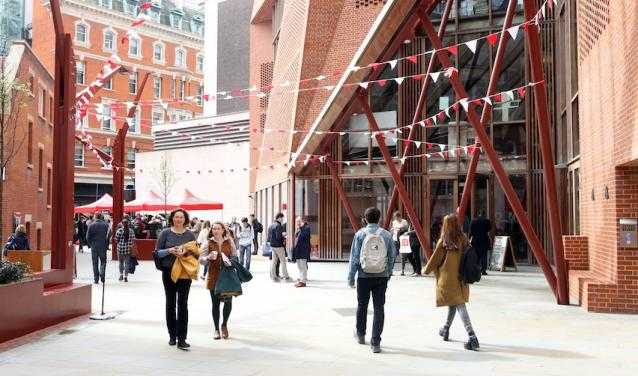Home>LSE becomes the eighth full member of CIVICA

07.07.2020
LSE becomes the eighth full member of CIVICA
On 16 June 2020, the European Commission updated the status of The London School of Economics and Political Science (LSE) from “associated partner” to “full member” of CIVICA - The European University of Social Sciences, following a request submitted by the alliance.
CIVICA was selected in 2019 as one of the first pilot European University alliances, an Erasmus+ flagship initiative that supports the building of strategic partnerships between European higher education institutions. Founded by seven leading higher education institutions specialised in the social sciences, CIVICA welcomed LSE as associated partner ever since its inception.
“We are delighted to welcome LSE as a full member into our European University alliance. CIVICA is now in an even stronger position to deploy its full potential for the greater benefit of students and faculty, and to make a positive impact on society through the social sciences and humanities. The excellent and complementary profiles of our eight institutions open up remarkable possibilities for education, research, innovation and civic engagement in Europe and beyond,” stated the Presidents of the other seven full members of CIVICA.
Commenting on the news of LSE’s full membership in CIVICA, LSE Director, Minouche Shafik, said: “This is wonderful news. Our heartfelt thanks go to our CIVICA colleagues who shared our enthusiasm to become a full member and supported the bid to the EU Commission for approval. To combat climate change, recover from global health crises or tackle widespread inequality, we need the understanding and insight that come from the social sciences, humanities and the arts. And now, more than ever, it is essential we work closely with our CIVICA partners to overcome these enormous challenges.”
By joining forces with LSE’s community, CIVICA currently connects 50,000 students and 10,000 faculty members across Europe.
CIVICA’s full members are: Bocconi University (Italy), Central European University (Austria and Hungary), European University Institute (Intergovernmental), Hertie School (Germany), National University of Political Studies and Public Administration (Romania), Sciences Po (France), Stockholm School of Economics (Sweden) and The London School of Economics and Political Sciences (United Kingdom).
More information